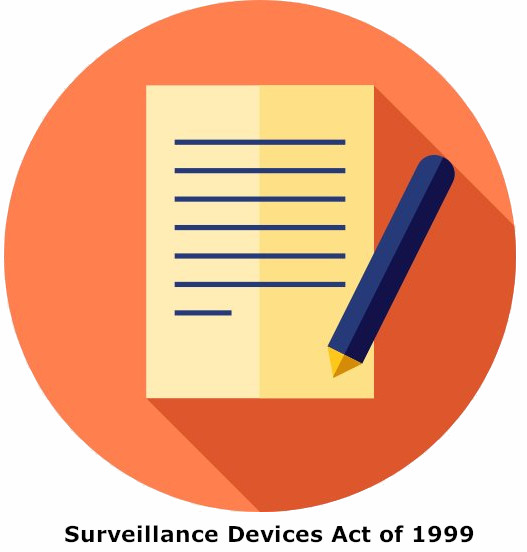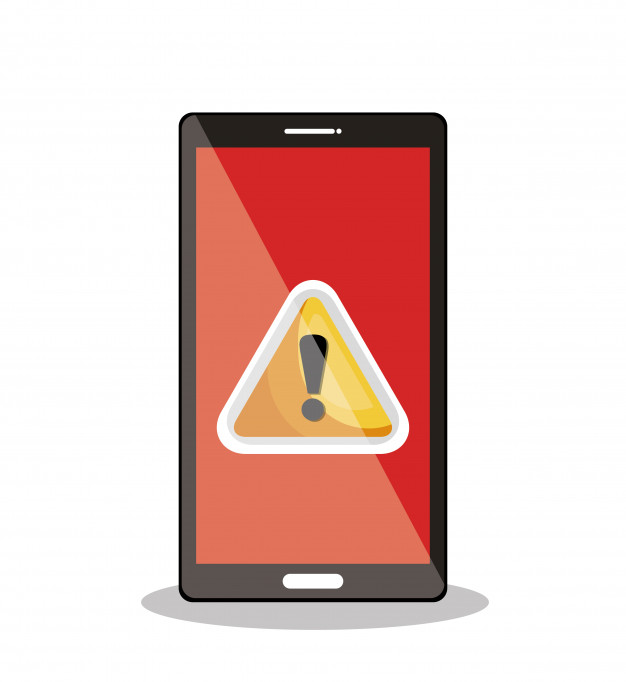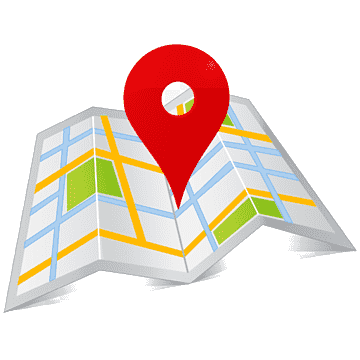Disclosure: Privacy Australia is community-supported. We may earn a commission when you buy a VPN through one of our links. Learn more.
Surveillance Devices Act of 1999

The Surveillance Devices Act of 1999 is a well-known piece of legislation that applies to Victorian residents.
Like many other defensive acts, it’s designed to protect citizens’ privacy and prevent them from being spied upon illegally by both their peers and law enforcement officers.
But how well does this Act actually accomplish those goals, and can the government exploit certain loopholes to spy on you anyway?
Let’s break down both of these questions and more in this detailed overview of the Surveillance Devices Act of 1999.
What is the Surveillance Devices Act of 1999?

The Surveillance Devices Act of 1999 is a piece of Victorian legislation designed to regulate the installation, maintenance, use, and retrieval of surveillance devices throughout Victoria.
It was originally implemented to protect private citizens and prevent them and their conversations from being illegally recorded and then used against them in criminal trials.
However, the law has evolved over time and while it still serves to protect citizens in many cases, it’s also clear that it’s not as airtight or defensive against government overreach as initially conceived.
In a nutshell, the Surveillance Devices Act prevents listening, recording, or observational devices from surveilling private citizens and then using that information if it was gathered illegally. The law breaks down what counts as surveillance or listening devices in detail.
What Counts as a Surveillance or Listening Device?
According to the Surveillance Devices Act, any surveillance device means:
- ☑️ a data surveillance device
- ☑️ a listening device
- ☑️ an optical surveillance device
- ☑️ a tracking device
This covers devices intended to surveil both physical conversations and activities and digital conversations and activities which allowed the Act to remain relevant even well into the digital era.
Furthermore, the Surveillance Devices Act qualifies any device that combines two or more devices above, such as a machine that can record both visual data and audio data, as surveillance devices.
When Is It Illegal to Use a Listening Device?

In the terms laid out by the Surveillance Devices Act, listening devices are any devices that can be used to record, monitor, listen, or overhear a conversation spoken by or to another person through conversation.
This act doesn’t include any hearing aids or similar devices.
Meanwhile, it also describes a private conversation as any conversation carried out in circumstances that can “reasonably” show that the parties meant for it to only be heard by themselves.
For example, a conversation in the home is usually considered to be private.
The explains that it’s an offense for anyone to:
- ☑️ install, use or maintain a listening device…
- ☑️ so they can overhear, record, monitor, or listen to a private conversation…
- ☑️ when the installer or user of the device is not a party in the conversation.
To be a party in a conversation, the listener or user of the device has to have the permission of all other parties in the conversation.
In layman’s terms, it just means you can’t secretly install any listening device and use it to spy on a conversation you would not normally be privy to.
When Can You Legally Use a Listening Device?
The Surveillance Devices Act also lays out when you can use a listening device. A person can use a listening device if they are a party to the private conversation (within reason) and with certain law enforcement exceptions.
That last aspect is where much of the controversy of the act comes from. We’ll break down more about that below.
What About Optical Surveillance Devices?
The Surveillance Devices Act lays out similar rules when it comes to optical surveillance devices. Any optical surveillance device is any machine that can be used to record visually or observe any activities – it doesn’t have to just record. Note that it doesn’t include glasses, contact lenses, or similar devices.
The same rules about what constitutes a private activity apply for this part of the Act as well.
The Act explains that it’s an offense to use an optical surveillance device if they do so knowingly to record activities or conversations that are private. For instance, it is illegal to privately record someone stashing something in their bedroom without their knowledge. Each member of a private party must give their permission to the device recorder or user for the action to be legal.
Again, certain law enforcement exceptions apply. However, it’s totally legal to use an optical surveillance device if you are recording activities in public areas, such as the street, or in a home’s front yard.
What About Broadcasting or Sharing Recordings?
The Surveillance Devices Act also covers any broadcasting of recordings. With the exception of certain law enforcement caveats, it is illegal to broadcast any audio or visual recordings that were illegally obtained through the methods and manners described above.
So you can’t illegally record someone doing something, then broadcast that video footage on the nightly news. The same goes for generally sharing any illegally-recorded or recovered footage or audio data.
Tracking Devices

The Surveillance Devices Act also covers tracking devices.
In the Act’s language, it describes a tracking device as “any electronic device whose primary purpose is to determine someone’s or something’s geographic location”.
Note that this does not necessarily apply to devices that may have tracking devices included as ancillary or extra features.
It’s an offense to use a tracking device if the person being tracked has no knowledge of the tracking device, as this occurs without their consent. The person being tracked must explicitly consent to be tracked for the activity to be legal.
For instance, it’s illegal for a jealous husband to install a GPS tracking device in his wife’s car to see if she is having an affair. Once more, certain law enforcement exceptions do exist.
Data Surveillance
Last but not least, the Surveillance Devices Act applies certain restrictions to data surveillance devices or programs.
Interestingly, this part of the Act only regulates activities performed by law enforcement officers. The general population is not explicitly forbidden from using data surveillance devices or programs. However, this exception would be unlikely to hold up in court.
Issues with the Surveillance Devices Act of 1999

Despite its apparent complexity and thoroughness, there are some issues with the Surveillance Devices Act, specifically when it relates to law enforcement officers. Virtually all Australian legislation provides for certain public policy exceptions.
For example, Section 7(2) of the Surveillance Devices Act outlined that law enforcement officers or other government officials.
It states they can install and monitor a surveillance device if doing so was “reasonably necessary” in order to protect the public or even the person being spied on.
As you might guess, this is pretty broad and can be easily abused by government officials and lawyers when brought to court.
Furthermore, Section 11(2) of the Surveillance Devices Act allows for any communications of any recordings or publications to be used in court so long as it is “reasonably necessary” for the public interest. Public interest can easily be misconstrued to count as public safety or any other concept given the right legal defense.
Government Overreach
As you might imagine, the Surveillance Devices Act still allows significant government overreach, as any government officer can merely point to the above two sections of the Act and claim that they were acting for the public good, or even the good of the person they were spying on.
For example, they can easily set up cameras and use them to catch criminal activity. The “good” in this case would be stopping the person from committing a greater crime and incurring a longer prison sentence.
This also applies to data theft and surveillance, such as locating IP addresses that aren’t hidden and other data. It’s all too easy to imagine modern anonymity issues with private citizens’ data, especially with recent, COVID-19 related developments.
How to Protect Yourself from Government Surveillance

At the time of this writing, the Surveillance Devices Act is under review and many other parties are pointing out flaws with its original legislation and available loopholes.
But for now, you can’t rely on the Surveillance Devices Act to protect you from government overreach or surveillance as strongly as you might think.
To that end, it may be smart to use a quality cheap VPN and a fortified secure browser options like the Tor browser.
Both of these tools can help to mask your online identity and prevent your IP address and other identifying bits of data from being traced back to your home computer.
It’s not perfect for anonymity, but it’s a lot better than relying on incognito mode in your browser and other basic tools that can all too easily be circumvented.
Summary
All in all, the Surveillance Devices Act is a good start for protecting private citizens from government overreach and from being illegally spied upon by both law-enforcement officers and their peers. However, it still needs a lot of work.
It’s up to you to take your anonymity and privacy into your own hands until future legislation does a better job of securing your rights.
You Might Also Like:



